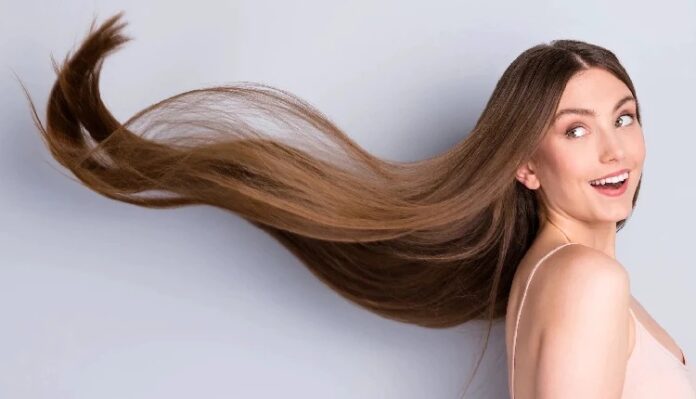Using expensive hair care doesn’t make your hair look or feel amazing, according to experts, without nutrients like Vitamins A, C, D, E and B. These are essential for healthy, moisturized and protect from damage which results in hair loss.
Here are the essential vitamins for hair growth you should know.
Keep Your System Well-Oiled With Vitamin A:
This vitamin is vital and responsible for sebum production – sebum is the natural oils which keeps your hair and skin hydrated. When hair is left on its own device it doesn’t dry out. The sebaceous glands (that produce the sebum) present near the roots of your hair, in the dermis layer of your skin, rely on a supply of fat-soluble vitamin A for normal development and maintenance of their function. Include the below in your grocery list:
- Orange
- Yellow fruits and vegetables
- Dark green leafy vegetables
- Broccoli
- Eggs
- Fortified cereals and milk
- Cod liver oil in your grocery list
B Vitamins For Hair Growth:
For a healthy and stronger hair growth foundation of B Vitamin is necessary. The absence of this vitamin results in hair fall or hair loss as research on the importance of B vitamin biotin has found. Deficiency of B 12 in childhood is also linked to premature greying. So stock up on B vitamin-fortified cereals, fish, eggs, meat and milk. B12, in particular, is found in:
- Shellfish
- Poultry
- Milk
- Eggs
- Organ meats
Vitamin C: Your Defense Against Ageing:
This vitamin is found in a range of citrus fruits and other yellow and orange vegetables, spinach, tomatoes, potatoes, sweet potatoes, cauliflower, broccoli, and berries, are vital for the production of collagen which is in our hair shaft help hair growth and also acts as a building block for hair. Apart from this, vitamin C plays an important role in protecting your body from free radical damage by neutralizing these free radicals. Your hair would witness progressive deterioration as cellular structures would experience damage without such non-enzymatic antioxidants this we interpret as ageing. The result, grey hair and alopecia or reduced hair production.
Vitamin D:
Vitamin D is a vital immune regulator and also is involved in cell growth and differentiation. Animal studies found that test subjects benefitted from therapeutic use of the nutrient, demonstrating its potential for promoting hair growth in those with alopecia areata linked hair fall issues. However, more research is needed to confirm the safety and effectiveness of therapeutic use of Vitamin D on human subjects for hair loss. You can get vitamin D in your diet through fatty fish (salmon, tuna, mackerel) or through cheese, egg yolks, and beef liver. Just as important, be sure to get some sunlight exposure every day to help your body generate this vitamin internally too. Researchers have found a connection between inadequate vitamin D intake and alopecia or hair loss.
The Protective Effects Of Vitamin E:
This vitamin is a popular ingredient used in many cosmetics and its great for your hair too. It protects hair from sun damage or oxidative stress when it is exposed to harsh UV rays. According to a study it’s being found that supplementation of Vitamin E for 8 months brought about a 34.5 per cent increase in hair growth among test subjects with alopecia. Like Vitamin C, Vitamin E too is an antioxidant and part of your body’s defence against free radical damage, greying, and reduced hair production or alopecia. You’ll find this vitamin in foods like:
- Seeds
- Green leafy vegetables
- Broccoli
- Nuts
The Effects Of A Vitamin Deficiency:
Hypopigmentation of hair commonly referred to as premature greying is associated with deficiency of vitamins D3 or B12 as found by research.
If you miss, the recommended intake of these vitamins can cause other health problems, your hair too will suffer. In fact, not having enough of these vitamins could cause your hair to age faster without the protective effects of these nutrients.
Apart from their individual benefits, these vitamins are also antioxidants that have a more far-reaching protective effect for your hair. They protect your hair from toxins that it is exposed to, which would otherwise hasten damage and the ageing process.
Without their support, you may end up with drier more brittle hair that breaks and falls easily. Or you could see hair greying prematurely or at a faster pace than it should normally.


